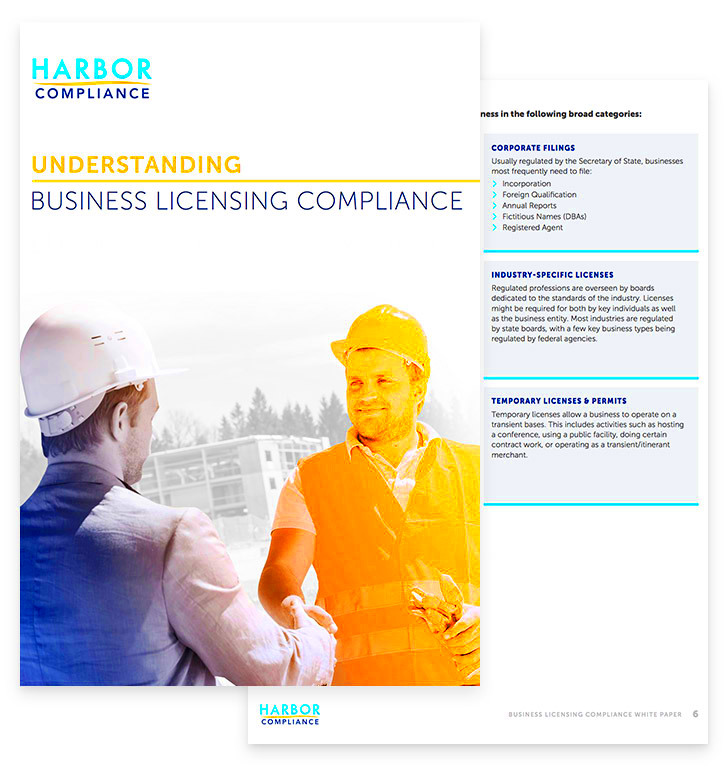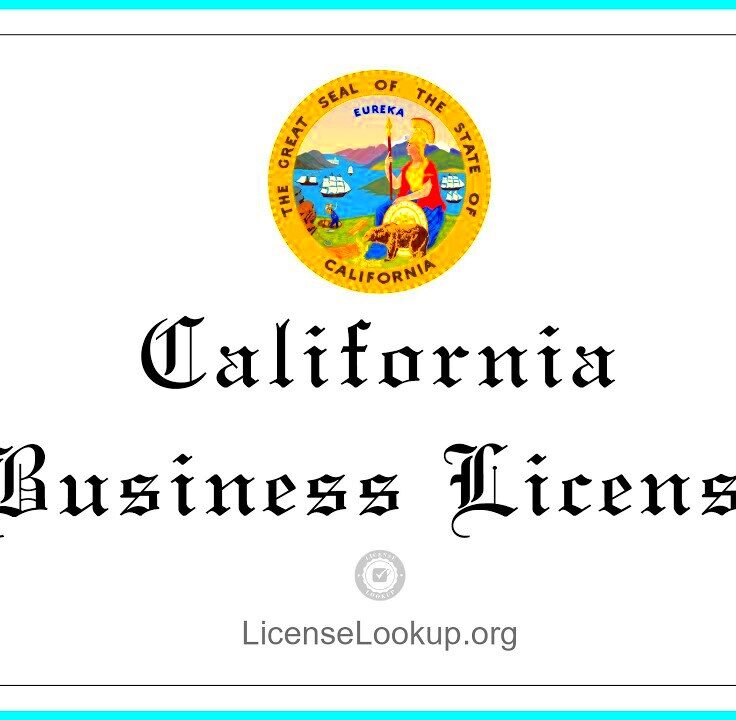Revising Business Licensing and Compliance Laws in California
Launching a venture in the Golden State comes with its share of excitement and hurdles. The rich economy presents a wealth of possibilities but tackling the intricacies of business permits and adherence can be quite daunting. Having traversed this journey myself I empathize with the challenges of navigating through the maze of rules. While Californias regulations aim to safeguard consumers and uphold fairness they are anything but straightforward. Regardless of whether you’re a fresh faced entrepreneur or an established business proprietor keeping yourself updated on licensing obligations is vital, for achieving success.
Understanding California’s Business Licensing Requirements

The regulations for obtaining a business license in California can differ based on the nature of your business, where its situated and how big it is. Heres a breakdown to give you a better understanding.
- Business Licenses: Most businesses need a general business license from the city or county where they operate. This license ensures that you comply with local zoning laws and business regulations.
- Professional Licenses: Certain professions, such as contractors, healthcare providers, and real estate agents, need specific licenses issued by state boards. These licenses often require passing exams and meeting educational criteria.
- Seller’s Permit: If your business sells goods or taxable services, you’ll need a seller’s permit from the California Department of Tax and Fee Administration (CDTFA).
- Employer Identification Number (EIN): An EIN is essential for tax purposes and is required for businesses with employees. It’s issued by the IRS.
The process and requirements for obtaining different types of licenses vary. For instance when applying for a permit you’ll need to share information about how your business will operate and your anticipated sales. It’s a good idea to seek guidance from a business advisor or legal professional to make sure you fulfill all the necessary criteria.
Key Changes in Licensing Laws for 2024

As California progresses its licensing regulations are also adapting. Here are some important updates to be aware of for 2024.
- Streamlined Application Processes: The state has introduced new measures to simplify and expedite the licensing process. Online portals have been upgraded, making it easier to submit applications and track their status.
- Increased Fees: Some licensing fees have been increased to cover the rising costs of regulatory oversight. It’s important to budget for these changes, as they could impact your startup costs.
- Enhanced Compliance Requirements: New compliance requirements have been implemented to ensure businesses adhere to environmental and labor regulations. This includes stricter reporting on sustainability practices and employee rights.
- Expanded Support for Small Businesses: The state is offering more resources and support for small businesses, including grants and training programs to help them navigate the licensing landscape.
Keeping track of these updates is crucial to ensure adherence and prevent any potential fines. Make it a habit to visit the California Department of Consumer Affairs and local business development websites to stay informed about the latest news.
Compliance Obligations for Different Types of Businesses

Navigating the compliance scene in California can feel like trekking through a thicket. Every industry comes with its own responsibilities and grasping these is crucial to steer clear of any legal issues and keep things running smoothly. Drawing from my experiences and insights from fellow business owners here’s an in depth exploration of what various ventures should be aware of.
- Retail Businesses: If you’re in retail, besides obtaining a business license and seller’s permit, you must adhere to health and safety standards, especially if you handle food products. Compliance with local zoning laws is also crucial to ensure your store operates in an approved location.
- Professional Services: Professionals like doctors, lawyers, and accountants must hold valid state-issued licenses. These often require ongoing education and adherence to ethical standards. For example, healthcare professionals need to stay updated on patient privacy laws and medical practice standards.
- Construction and Real Estate: These sectors require specific certifications and licenses. Construction businesses need to follow strict safety regulations and obtain permits for each project. Real estate agents must stay informed about changes in property laws and maintain their licensure through periodic renewals and continuing education.
- Technology Startups: Tech companies need to comply with data protection regulations, especially if they handle user data. California’s Consumer Privacy Act (CCPA) mandates transparency and protection of consumer data, making it essential for tech businesses to have robust privacy policies and practices in place.
Every sector has its own governing authority and distinct compliance standards. Staying updated on these responsibilities goes beyond merely preventing penalties; it’s also about establishing reliability and integrity with your clients.
Steps to Ensure Your Business Meets New Standards
Meeting new business standards can be quite a challenge, like tackling a hill. From my own experience with this process I’ve discovered that taking a careful approach can make the journey easier. Here’s a guide to help keep your business in line with regulations.
- Review Updated Regulations: Start by thoroughly reviewing any new laws or regulations that affect your business. Check the official websites of relevant regulatory bodies or consult with a legal advisor.
- Update Your Business Practices: Adapt your operations to align with new standards. This may involve revising company policies, updating training programs, or adjusting your business model. For instance, if new environmental regulations are in place, you might need to implement more sustainable practices.
- Train Your Team: Educate your employees about the new standards and how they affect their roles. Effective training ensures that everyone in your business is on the same page and can help prevent compliance issues.
- Implement Monitoring Systems: Establish systems to regularly monitor compliance. This could be as simple as scheduled audits or as comprehensive as adopting compliance management software to track regulatory changes and adherence.
- Seek Professional Help: Sometimes, the best way to navigate new standards is by seeking professional advice. Consultants or legal experts can provide valuable insights and help ensure that your business complies with all regulations.
By taking a proactive approach to compliance you can not only steer clear of legal problems but also establish your businesss reputation as a reliable and trustworthy organization.
Common Pitfalls to Avoid in Licensing and Compliance
Based on my own experiences and seeing the struggles of others I can share that there are some pitfalls in licensing and compliance that can throw off even the most well meaning companies. Here’s a list of things to be cautious about.
- Ignoring Updates: Regulations are not static; they evolve. Failing to stay updated on changes can lead to unintentional non-compliance. Regularly review updates from relevant authorities and adjust your practices accordingly.
- Incomplete Applications: An incomplete or incorrect application can delay your licensing process or lead to rejections. Double-check all forms and documentation before submission. It’s worth investing extra time to ensure everything is accurate and complete.
- Neglecting Training: Compliance isn’t just about following rules; it’s about understanding them. Neglecting to train your employees on compliance matters can lead to mistakes and potential legal issues. Make sure everyone in your team is well-informed about their responsibilities.
- Underestimating Costs: Compliance can come with significant costs, from licensing fees to investments in training and technology. Failing to budget for these expenses can strain your finances. Plan ahead and allocate resources accordingly.
- Overlooking Local Regulations: California has state-wide regulations, but local jurisdictions might have additional requirements. Ensure that you’re compliant with both state and local laws to avoid any surprises.
Staying clear of these typical traps calls for attentiveness and proactive handling. By recognizing these challenges and tackling them directly you can uphold adherence to regulations and concentrate on expanding your venture.
Resources for Staying Updated on Business Laws
Staying updated with business regulations can be quite a challenge. Based on my experiences I’ve realized that having access to resources can greatly simplify this process. So here’s a helpful guide to navigating the constantly evolving business world.
- Government Websites: Start with official government websites like the California Department of Consumer Affairs or the Secretary of State’s office. These sites provide updates on new regulations, compliance requirements, and application procedures.
- Industry Associations: Joining industry-specific associations can be incredibly helpful. These organizations often offer resources, training, and updates tailored to your sector. For instance, the California Retailers Association provides insights into changes affecting retail businesses.
- Legal Advisors: Regular consultations with a business attorney can provide personalized advice and keep you informed about legal changes. Attorneys can offer tailored guidance on how new laws might impact your business.
- Newsletters and Journals: Subscribe to business law newsletters and industry journals. Many of these publications offer regular updates on changes in laws and regulations, helping you stay informed.
- Online Forums and Social Media: Engage with online forums and social media groups related to your industry. These platforms often discuss recent legal changes and offer advice based on real-world experiences.
Keeping yourself in the loop calls for a mindset. By utilizing these tools you can ensure that your business stays on track and steer clear of any unexpected developments. Think of it as having a trustworthy guide in an ever changing environment.
How to Handle Licensing and Compliance Disputes
When it comes to licensing and compliance disputes it can be quite a challenge. I’ve witnessed companies getting caught up in these matters and it’s essential to address them properly. Here’s a strategy for dealing with such conflicts, in an efficient way.
- Document Everything: Maintain thorough records of all your compliance efforts and communications with regulatory bodies. This documentation can be invaluable if disputes arise, as it provides evidence of your adherence to regulations.
- Understand the Issue: Clearly identify the nature of the dispute. Is it a misunderstanding, a procedural error, or a substantive issue? Understanding the root cause will guide your approach to resolving it.
- Communicate Professionally: Engage with the regulatory body or the opposing party respectfully and professionally. Clear communication can often resolve misunderstandings and help find a mutually agreeable solution.
- Seek Mediation: If direct communication doesn’t resolve the issue, consider mediation. A neutral third party can help facilitate a resolution and ensure that both sides have a fair hearing.
- Consult Legal Experts: If the dispute is complex or involves significant legal implications, consult with a lawyer who specializes in business law. Legal experts can provide guidance on your rights and the best course of action.
- Appeal Processes: If necessary, follow the formal appeal process. Ensure that you meet all deadlines and provide all required documentation to support your case.
Dealing with conflicts in a composed and knowledgeable manner can stop things from getting worse and help you keep a good rapport with regulatory agencies. Its about tackling problems directly and seeking resolutions that are in line with both legal obligations and objectives.
Frequently Asked Questions
When it comes to business licensing and compliance it’s normal to have questions. Drawing from the inquiries Ive come across here are some responses to address your concerns:
- What are the common reasons for a licensing application being rejected? Common reasons include incomplete applications, failure to meet eligibility criteria, or insufficient documentation. Double-check all requirements before submission to avoid these issues.
- How often do I need to renew my business license? Renewal frequency varies depending on the type of license and local regulations. Typically, business licenses need to be renewed annually or biennially. Check with your local licensing authority for specific timelines.
- What should I do if I receive a notice of non-compliance? Review the notice carefully to understand the specific issues. Address the concerns outlined, and if needed, seek advice from a compliance expert or legal advisor to resolve the issues promptly.
- Can I appeal a decision made by a regulatory body? Yes, most regulatory bodies have an appeal process. Follow the procedure outlined in the notice you receive and provide any additional documentation or evidence to support your case.
- How can I stay informed about changes in business laws? Utilize resources like government websites, industry associations, and legal advisors. Subscribing to newsletters and engaging with professional networks can also keep you updated.
By answering these inquiries you can gain a better understanding and confidently navigate the intricacies of obtaining a business license and ensuring compliance. If you have concerns feel free to reach out for personalized guidance from experts.
Conclusion
Navigating the intricacies of business licensing and compliance in California can be an overwhelming journey yet it comes with its rewards. From grasping regulations to resolving disputes each effort you make to remain compliant brings you closer to establishing a resilient and trustworthy venture. Personally I’ve witnessed how staying proactive and well informed can transform challenges into opportunities for growth and development. It’s important to remember that while the regulatory landscape may appear daunting at times having resources and a careful approach can greatly simplify the process. Stay informed seek assistance when necessary and view compliance as an integral aspect of your business strategy. With commitment and the mindset not only will you fulfill legal obligations but also boost your business’s credibility and success.


